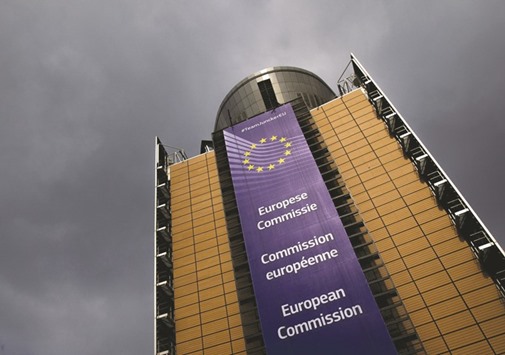European Union banks and asset managers are set to win looser rules on buying and selling bonds and derivatives, after the bloc’s executive branch called for a rewrite of restrictions on securities.
The European Commission pushed back against proposed European Securities and Markets Authority regulations that demanded increased transparency in non-equity markets, saying a “more cautious approach” was needed for securities that are hard to trade, according to a letter from the commission to ESMA that was obtained by Bloomberg News. ESMA, which is in charge of writing the standards, said it was considering how to respond.
The commission said the current draft standards “might identify too many bonds as liquid instruments” and need revisions to ensure the regulations accurately reflect market liquidity. It sent two additional letters to ESMA, including a request for changes to proposed curbs on commodity trading.
“The latest drafts were far from being acceptable,” Markus Ferber, the European Parliament’s lead lawmaker overseeing the MiFID II market overhaul of financial regulation, said in a statement. “Further work is necessary.”
European lawmakers took a vote on the rules off the agenda of a committee meeting this week “to send a strong signal to the Commission that they should adopt the implementing legislation swiftly and in line with Parliament’s demands,” Ferber said. They are now aiming to vote on April 7.
ESMA has received the letters from the commission and is “studying the contents and deciding on the way forward,” spokesman David Cliffe said in a statement.
ESMA, an independent EU authority, was asked to make annual assessments of liquidity in all classes of bond markets covered by the regulations and also to phase in restrictions over four years, according to the commission’s letter. The commission also proposed that more bonds and derivatives get an exemption from the trading requirements when they begin to take effect.
As the rules get phased-in, ESMA should “regularly assess” market liquidity to ensure the standards “do not pose undue risks,” the commission said.
Lobbying groups including the Association for Financial Markets in Europe and the International Swaps and Derivatives Association had argued the proposed standards would harm trading.
“Our analysis has shown that certain illiquid derivatives instruments risk being mis-classified as liquid under the current transparency regime,” said Roger Cogan, head of European public policy at ISDA. “This could deter market makers from providing quotes in these illiquid instruments, as it would make it more challenging for them to risk-manage their exposures.”
The UK said in a letter to the commission last month that the proposed standards might harm markets in bonds, derivatives and other financial instruments. The draft standards could damage liquidity and “may have a significant impact on the costs of financing and hedging risks,” the British government said.
The commission also called on ESMA to change its restrictions on traders’ positions in commodities to ensure the rules meet their objectives of “preventing market abuse, supporting orderly pricing and settlement conditions and promoting the integrity of the market.”
The commission said part of the ESMA proposals “could allow for easy circumvention of the regime” by using over-the-counter contracts rather than exchange-traded derivatives. ESMA was also asked to toughen curbs on speculation in agricultural commodities by lowering limits on the size of a position any trader can have.
In its third request, the commission said ESMA should take a “more cautious approach” and change methodologies for determining when a commodity-trading firm must be covered by MiFID’s trading rules. MiFID exempts firms dealing on their own account or providing investment services to clients in commodity derivatives when it is an activity that is ancillary to their main business.

The European Commission headquarters is seen in Brussels. The commission pushed back against proposed European Securities and Markets Authority regulations that demanded increased transparency in non-equity markets, saying a ‘more cautious approach’ was needed for securities that are hard to trade, according to a letter from the commission to ESMA that was obtained by Bloomberg.
